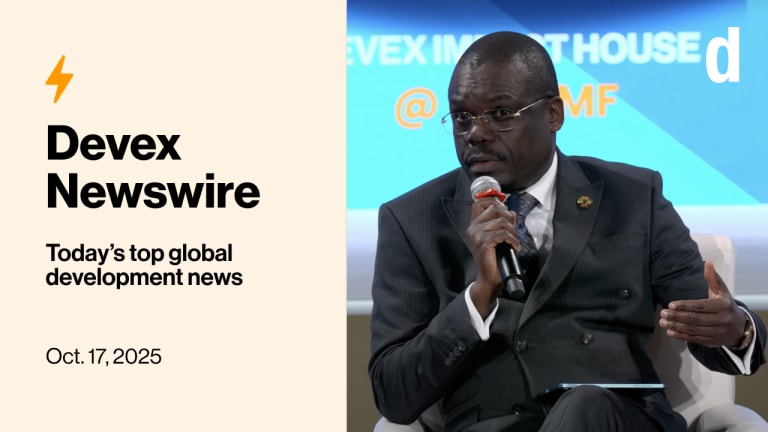The World Bank has directed the Africa Centres for Disease Control and Prevention to eliminate 42 positions it currently funds, cutting the number of World Bank-supported roles from 87 to no more than 45 — a reduction of roughly 50% — according to an email Dr. Jean Kaseya, director-general of Africa CDC, wrote to staff last week. The email also said the bank will need to approve any positions that remain.
The email — which Devex obtained — said the World Bank directed his agency to begin implementing what he called “significant organizational changes to align with the current situation of aid cut[s] by showing value for money, efficiency, sustainability and impact.”
The cuts are specifically around the World Bank’s five-year Africa CDC Regional Investment Financing Project, which is currently undergoing a mid-term review, Dr. Ngashi Ngongo, principal adviser to the organization’s director-general on program management, told Devex. Of the 87 positions initially approved under the project, only 40 are currently filled, and some are already being supported through complementary funding streams, he said.








